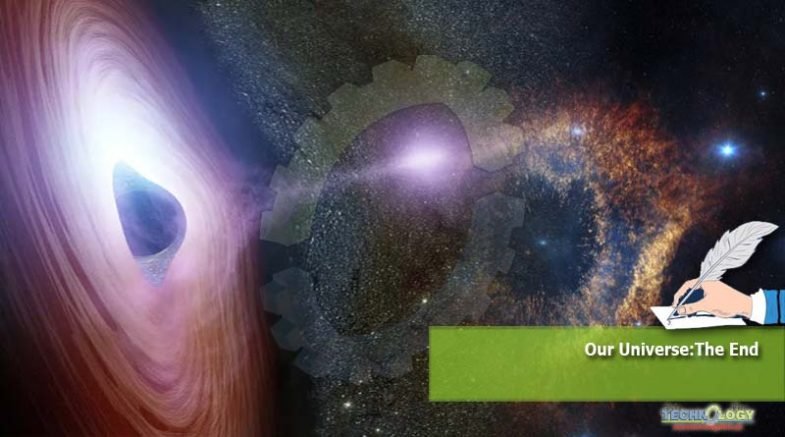The universe is all that is, all that was and all that will ever be or so we thought.
 In 1929 Edwin Hubble discovered that the universe was expanding. Galaxies were moving farther and farther away from one another. Hence it was easy to conclude that they were previously closer. Coupled with the accidental detection of cosmic waves, this paved way for the discovery of the big bang: the beginning of our universe. Fourteen billion years ago all matter and energy were compressed into an extremely hot and dense point. This point is called a singularity. Suddenly, it began to expand. As it cooled down, gravitational fluctuations resulted in star formation , which made galaxies .The dying stars formed supernovas and ejected particles made in their cores , distributing matter throughout the universe. Heavier stars collapsed to form black holes. Hence the universe as we see it today came to be the big bang.
In 1929 Edwin Hubble discovered that the universe was expanding. Galaxies were moving farther and farther away from one another. Hence it was easy to conclude that they were previously closer. Coupled with the accidental detection of cosmic waves, this paved way for the discovery of the big bang: the beginning of our universe. Fourteen billion years ago all matter and energy were compressed into an extremely hot and dense point. This point is called a singularity. Suddenly, it began to expand. As it cooled down, gravitational fluctuations resulted in star formation , which made galaxies .The dying stars formed supernovas and ejected particles made in their cores , distributing matter throughout the universe. Heavier stars collapsed to form black holes. Hence the universe as we see it today came to be the big bang.
Naturally one may ask, if the universe has a beginning will it also have an end? Is the universe mortal? As we carelessly live our lives is it growing older and slowly coming to its ultimate end?
Previous assumptions concluded that the rate of expansion of our universe would slow down due to gravity. However, scientists were amazed when Saul Perlmutter, Adam Riess, and Brian Schmidt discovered the rate of expansion was increasing. If there isn’t enough mass in the universe, then galaxies will accelerate away from one another until they exceed the speed of light. Resultantly, light from these galaxies will no longer reach us. We will be alone in a cold desolate universe.
The stars will die, the atoms will decay, and the black holes will evaporate leaving the Cosmos bare. Ultimately, it will reach the highest state of entropy (the temperature throughout the universe will be the same). Our cosmos will come to its end in the big freeze.
Furthermore if dark energy is strong enough to overcome the gravitational pull within galaxies then the big rip will occur; initially galaxies will be torn apart followed by large structures like black holes and neutron stars. Our solar system will break apart, smaller structure’s will be unable to escape the pull of dark energy , breaking apart. Eventually matter itself will be ripped to shreds; Particles that survived this onslaught will no longer be able interact with one another. Forever in solitude, wandering a lonely universe.
On the other hand, if there is enough mass than the force of gravity will stand victorious. The total mass slowly coming together. firstly, galaxies will collide against each other, followed by the stars and planets compressing together. This mixture will become denser and hotter until it forms a black hole. Eventually, all matter will be compressed into a singularity (similar to a reverse big bang). To quote Paul Davis “ A universe that come from nothing at the big bang will disappear into nothing at the big crunch, its glorious few zillion years of existence not even a memory” .
However, do not abandon hope for in due time it may expand again, forming a new universe from the ashes of our old one. The big crunch theory states that this is the continuous cycle through which our universe came to be. This is the most hopeful (though unlikely) outcome. The universe goes on and even after we are long gone the cycle will prevail.
